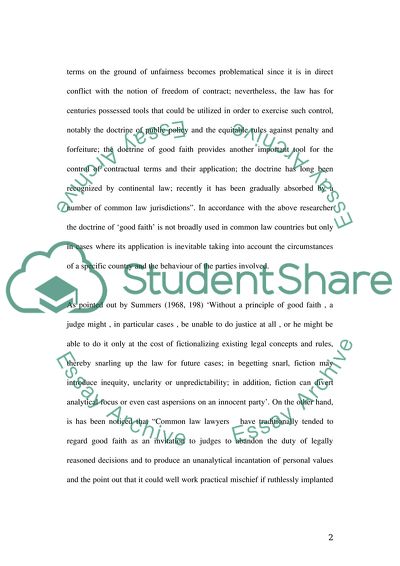Cite this document
(“To What Extent Does the Principle of Good Faith Play in English Contra Research Paper”, n.d.)
To What Extent Does the Principle of Good Faith Play in English Contra Research Paper. Retrieved from https://studentshare.org/law/1707640-to-what-extent-does-the-principle-of-good-faith-play-in-a-english-contract-lawand-b-french-contract-law
To What Extent Does the Principle of Good Faith Play in English Contra Research Paper. Retrieved from https://studentshare.org/law/1707640-to-what-extent-does-the-principle-of-good-faith-play-in-a-english-contract-lawand-b-french-contract-law
(To What Extent Does the Principle of Good Faith Play in English Contra Research Paper)
To What Extent Does the Principle of Good Faith Play in English Contra Research Paper. https://studentshare.org/law/1707640-to-what-extent-does-the-principle-of-good-faith-play-in-a-english-contract-lawand-b-french-contract-law.
To What Extent Does the Principle of Good Faith Play in English Contra Research Paper. https://studentshare.org/law/1707640-to-what-extent-does-the-principle-of-good-faith-play-in-a-english-contract-lawand-b-french-contract-law.
“To What Extent Does the Principle of Good Faith Play in English Contra Research Paper”, n.d. https://studentshare.org/law/1707640-to-what-extent-does-the-principle-of-good-faith-play-in-a-english-contract-lawand-b-french-contract-law.


